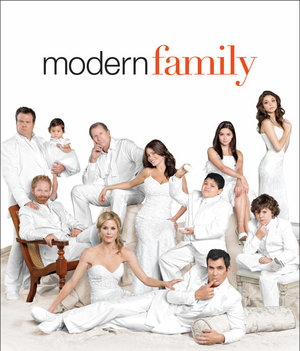Modern Family and Breaking Bad Sweep the Emmys

By Tom Dotan
Originally published on Neon Tommy
Change finally worked its way into the Emmys last night; unfortunately the Emmys does change like it does pacing: slow, uneven, and somewhat haphazard.
In the big categories, ABC’s “Modern Family” took home the Emmy for Best Comedy, ending “30 Rock’s” three-year reign. AMC’s “Mad Men” held steady for Best Drama, and can now claim itself as a three-peat winner.
“Modern Family” was arguably the big story of the night, also taking Best Writing in a Comedy and Best Supporting Actor for Eric Stonestreet who plays Cam on the show. All are well-deserved recognitions for ABC’s sitcom, which creatively melds the structure of a faux documentary to the formulas of a traditional family sitcom. NBC’s “30 Rock” was coming off a sub-par season by their high standards and when matched against the critical acclaim and strong ratings of “Modern Family”, a changing of the guard wasn’t too surprising.
Jim Parsons (“The Big Bang Theory”) and Edie Falco (“Nurse Jackie”) won the Best Lead Comedy actor and actress respectively. Falco seemed fairly surprised by the award, noting during her acceptance speech that she doesn’t consider herself a very funny person. Her show isn’t much of a comedy either, but this is the Emmys, where watching TV seems a mostly superfluous activity for the voters.
“Glee” seemed to carry a decent amount of momentum coming into the show, having already taken the Golden Globe for Best Comedy Series as well as a Television Critics Association Award for Program of the Year. However, after all the statues were doled out, Jane Lynch for Best Supporting Actress in a Comedy and Ryan Murphy for Best Directing in a Comedy had the show’s only hauls of the night. Blame the show’s weak second half, which showed neither the energy, humor, nor the tightness that it had coming out the gate.
AMC’s other critical darling, “Breaking Bad”, performed notably well. Bryan Cranston won Best Actor in a Drama, making it the third year in a row for him. Yet his proudest moment may have come when cast member Aaron Paul got the Supporting Actor Emmy for his portrayal of Jesse Pinkman– an unexpected but thoroughly deserved award. Cranston’s eyes welled up as Paul appeared flabbergasted on stage, stammering his way through an acceptance speech.
Based on gross numbers, both “Breaking Bad” and “Mad Men” did equally well on the evening, though I can’t stand behind the exact choices the Emmys made. Cranston’s work was brilliant as always, but Jon Hamm has never won for playing “Mad Men”’s dark and complex lead, Don Draper. In fact, “Mad Men”, in all its piles of Emmys, has never received a single acting award. Simply put, there is no “Mad Men” without Don Draper, and if this show is far and away the best show on TV, as the Emmys thinks it is, then credit needs to be given to someone other than show’s creator Matt Weiner. Likewise, the Emmys seems perfectly happy to recognize the acting on “Breaking Bad” but what of their excellent writing or groundbreaking cinematography? Their past season was also excellent throughout, whereas “Mad Men” floundered at times. It’s a weak gripe; I suppose I should just be happy I never watched “The Wire” while it aired.
Another big surprise of the night came in the Best Reality Competition Program, which was given to Bravo’s “Top Chef”. It’s a miracle that the members of the show were even in the theatre to take the award, and not, say, the bathroom. “The Amazing Race” had taken the award for seven years prior.
Host Jimmy Fallon had a few entertaining bits as the host, notably a musical opener with the cast of “Glee” that featured a very game Jon Hamm grinding against the ubiquitous Betty White. Mostly though, Fallon felt like a Catskills comedian, hamming it up on the guitar and laboring through one-liners that at best produced a chuckle and at worst ground down an already herky-jerky show. There was also a misguided and recurring Twitter-based comedy bit, which at once proved that comedy shouldn’t be crowd-sourced.And the pacing. The Emmy directors, assumedly under some severe orders from the affiliates, managed to keep the proceedings under time, but all at the expense of any flow. Al Pacino’s speech accepting Best Actor in a Miniseries for his performance as Jack Kevorkian in HBO’s “You Don’t Know Jack” was rambling and garbled, while Matt Weiner was abruptly cut off by a noisy drum during his annual Best Writing in a Drama award. But none of this is surprising. In a show that seeks to award good television, the Emmys rarely produces much of its own.
